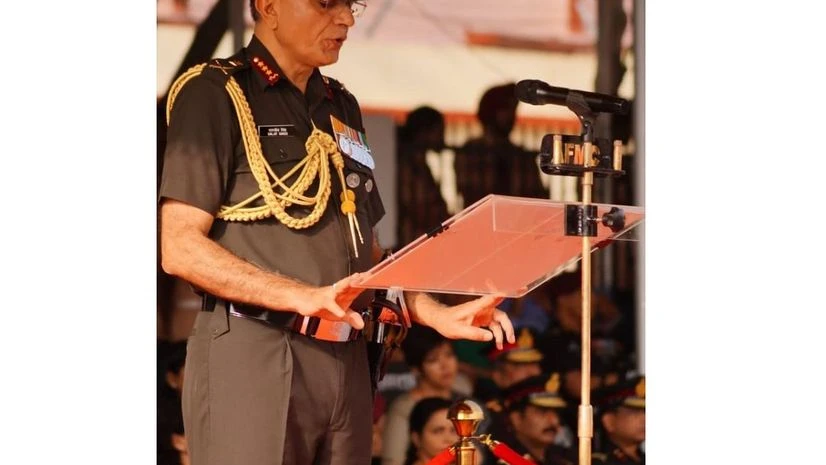Blood samples are being collected in a graded manner as part of DNA fingerprinting of armed forces personnel and this process has so far helped identify mortal remains in 12 cases, including the helicopter crash that killed then Chief of Defence Staff General Bipin Rawat, said Lieutenant General Daljit Singh, Director General - Armed Forces Medical Service (DGAFMS), on Monday.
Singh was addressing the press on the sidelines of the Pune-based Armed Forces Medical College's (AFMC)'s Platinum Jubilee celebrations.
It is an ongoing process in which blood samples are being collected in a graded manner for archiving in the repository that is maintained at AFMC's Department of Forensic Medicine, he said.
"What does DNA profiling mean? You take a drop of the blood of an individual, put it on a special filter paper, and store it in a repository. Later, if you want to identify that individual for some reason, such as an unfortunate accident, we can retrieve his sample from the repository and match it with the DNA recovered from the mortal remains," Lt General Singh explained.
"Dried blood spots on specialized filter paper of individuals (armed forces personnel) are stored in the Forensic Department at AFMC. So far, in 12 cases, mortal remains have been identified using this technology, including those who died in the crash of a helicopter carrying (CDS) General Bipin Rawat," he said.
Gen Rawat was killed along with 13 others, including his wife, in a helicopter crash in Tamil Nadu's Nilgiris area on December 8, 2021.
More From This Section
Speaking about the 'Doctor Pilot' project, Singh said the aim of the programme is for doctors to understand the problems faced by the pilots.
"Previously, doctors would have proper training and become pilots, and now with this project being resurrected, they will continue (to receive the proper training )," he said, adding the programme was stopped, but now, in a systematic way, it would be restarted.
"As of now, two doctors each in the fighter, helicopter, and transport streams will be trained. Based on the feedback, the project will evolve further," Singh said.
Addressing queries related to the preparedness of the AFMS for a possible resurgence of COVID-19, the DGAFMS said military hospitals are fully prepared with adequate manpower and equipment for such a situation.
Singh asserted the AFMC will be accorded status of Institute of National Importance in the coming years.
The Platinum Jubilee celebrations were attended by high-ranking officers and civilian dignitaries from across the country, with eminent medical professionals sharing their expertise through orations, panel discussions, and symposiums.
Among the highlights was a panel discussion on 'Contributions of Alumni to AFMC and the way forward', which was held in hybrid mode, with panelists and participants from across the globe.
The two-day event was successfully conducted under the guidance and patronage of Lt Gen Narendra Kotwal, Director and Commandant of AFMC, a defence release said.
On the occasion, a 108-foot Tricolour was hoisted by Flag Foundation of India in the presence of its founder and former MP Naveen Jindal.
(Only the headline and picture of this report may have been reworked by the Business Standard staff; the rest of the content is auto-generated from a syndicated feed.)

)
